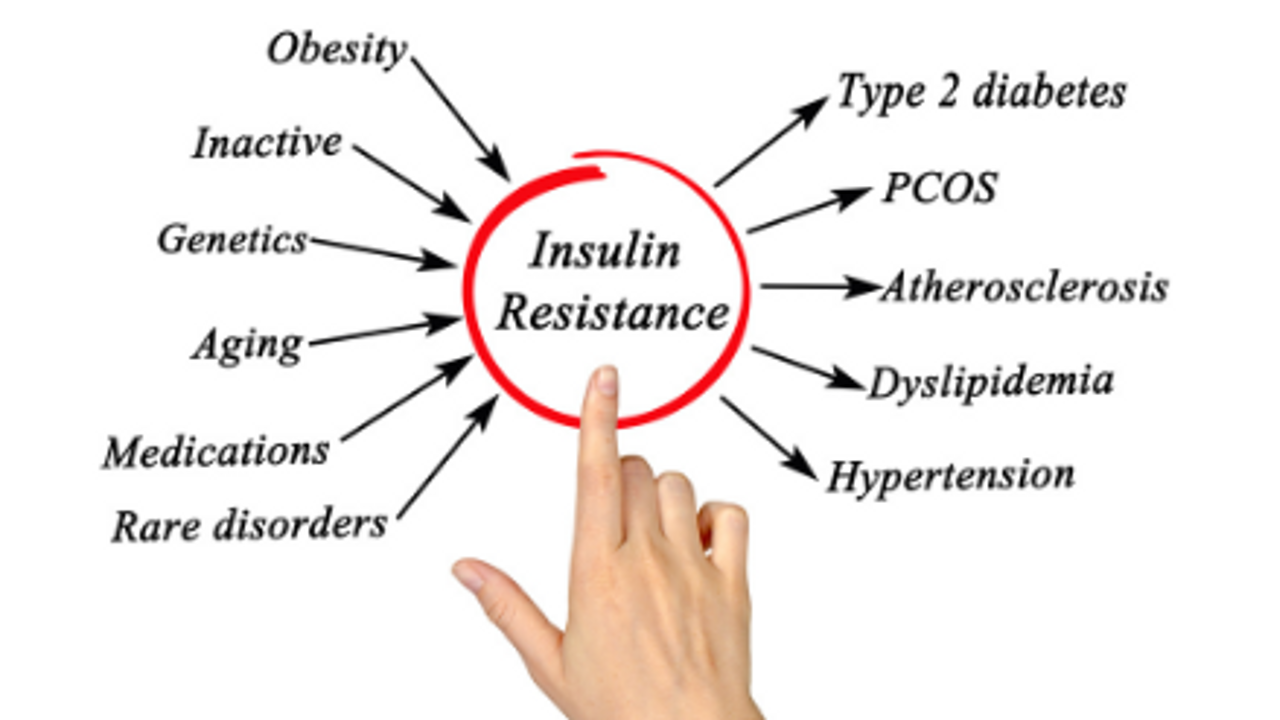What is Insulin Resistance & How Does it Affect Our Health?

How do you describe being healthy? Most people define healthy as NOT being sick. To dive into this further, we’ll spend the next four blogs discussing the book, Why We Get Sick by the prolific researcher and expert on insulin, Dr. Ben Bikman. Just as we’ve been covering the importance of data collection, Dr. Bikman emphasizes the importance of relying on data rather than dogma to make decisions about our health. Understanding insulin resistance (IR) will help you understand how fasting and other lifestyle changes can improve your health. From heart and kidney health to cancer and neurological disorders, read on to see how we break down the many ways metabolic health directly impacts your life!
Insulin
Most people don't know insulin's powerful effects on every organ. Insulin resistance is when cells in your muscles, fat, and liver don't respond well to insulin and can't easily take up glucose from your blood. As a result, your pancreas makes more insulin to help glucose enter your cells. Insulin resistance is so common that at least half of American adults (potentially 88%) have it! High insulin predates type 2 diabetes by up to 20 years, and the latest trend shows diabetes (type 1 and type 2) will increase by 54% between 2015 and 2030. Making lifestyle changes now can help you avoid serious health complications in the future.
Heart Health
Your heart needs healthy blood vessels and insulin resistance sabotages that through various mechanisms. Increased insulin causes inflammation, high blood pressure, and high oxidative stress, which is an imbalance between free radicals and antioxidants in your body. High insulin levels promote atherosclerosis which is the buildup of fats, cholesterol, and other substances in and on the walls of your arteries.
Brain & Neurological Disorders
The brain uses glucose as its primary source of energy. With insulin resistance, neurons cannot receive enough glucose to carry out basic tasks like learning and memory. Here are some other connections between IR and brain functioning:
- Besides genetic risk factors, the apoE4 gene, IR, has the strongest connection with Alzheimer’s, even more than age. Probably due to IR in the brain, leading to inadequate glucose uptake and energy problems.
- IR is associated with Parkinson’s and vice versa – dopamine-lowering medications cause IR temporarily.
- Migraines have a strong association as well, possibly due to glucose uptake issues.
Reproductive Health
Most people would never expect insulin to play a role in reproduction, let alone an essential one. Yet, insulin is absolutely necessary for normal reproduction. How? In men, IR contributes to lower testosterone, sperm dysfunction, and ED. In women, IR is linked to pregnancy issues, including infertility, gestational diabetes, preeclampsia, oversized babies, and PCOS. IR is a major probable contributor to earlier and earlier puberty, as fat storage and leptin send signals to start puberty.
Cancer
How does IR affect cancer risk? It has to do with fat, especially the fat around your waist and organs. With IR, you’re more likely to create fat cells resulting in the combination of these three cancer risks: weight gain, inflammation and hormone disruptions. The strongest associations are breast, prostate, and colon cancer because of the higher amount of insulin receptors in these organs.
Aging, Skin, & Muscles
Taking care of your metabolic health by becoming insulin sensitive can help prevent countless unwanted conditions. Aging, skin, and muscular disorders can be affected by insulin resistance in the following ways:
- Skin problems, including acne and psoriasis
- Muscular issues such as brittle bones can lead to more fractures
- IR negatively impacts muscle growth and maintenance
- There is an association between IR and fibromyalgia
- Kidneys retain more uric acid in gout patients
- IR has been associated with Ménière's disease, which is a rare disorder that can cause vertigo, tinnitus, hearing loss, and deep ear pressure
GI & Kidney Health
Our GI and kidneys work to block harmful substances from entering and staying in our bodies, making them vital to keeping our bodies clean! When our bodies are resistant to insulin, we can develop conditions such as GERD, gastroparesis, fatty liver, gallstones, hyperlipidemia and hyperglycemia.
Final Thoughts
If this information blows your mind, just wait! Next week I’ll cover the Causes of IR and What Makes Us Resistant to Insulin. As a life coach, I’ve seen many clients reverse IR by using the tools we provide with life-changing results! By understanding the importance of metabolic health, you establish a baseline for health that, together, we can start optimizing.
Check out our Self-Made Mind & Body Taste Test. This 4 week program teaches you the steps to building weight loss protocols and offers 4 weeks of LIVE group coaching on how to solve the Mind Math.


